This 'Hobbit House' eco home blends into the landscape perfectly
The self builders behind this striking 'Hobbit House' eco home designed it with a borehole, solar panels and biomass boiler
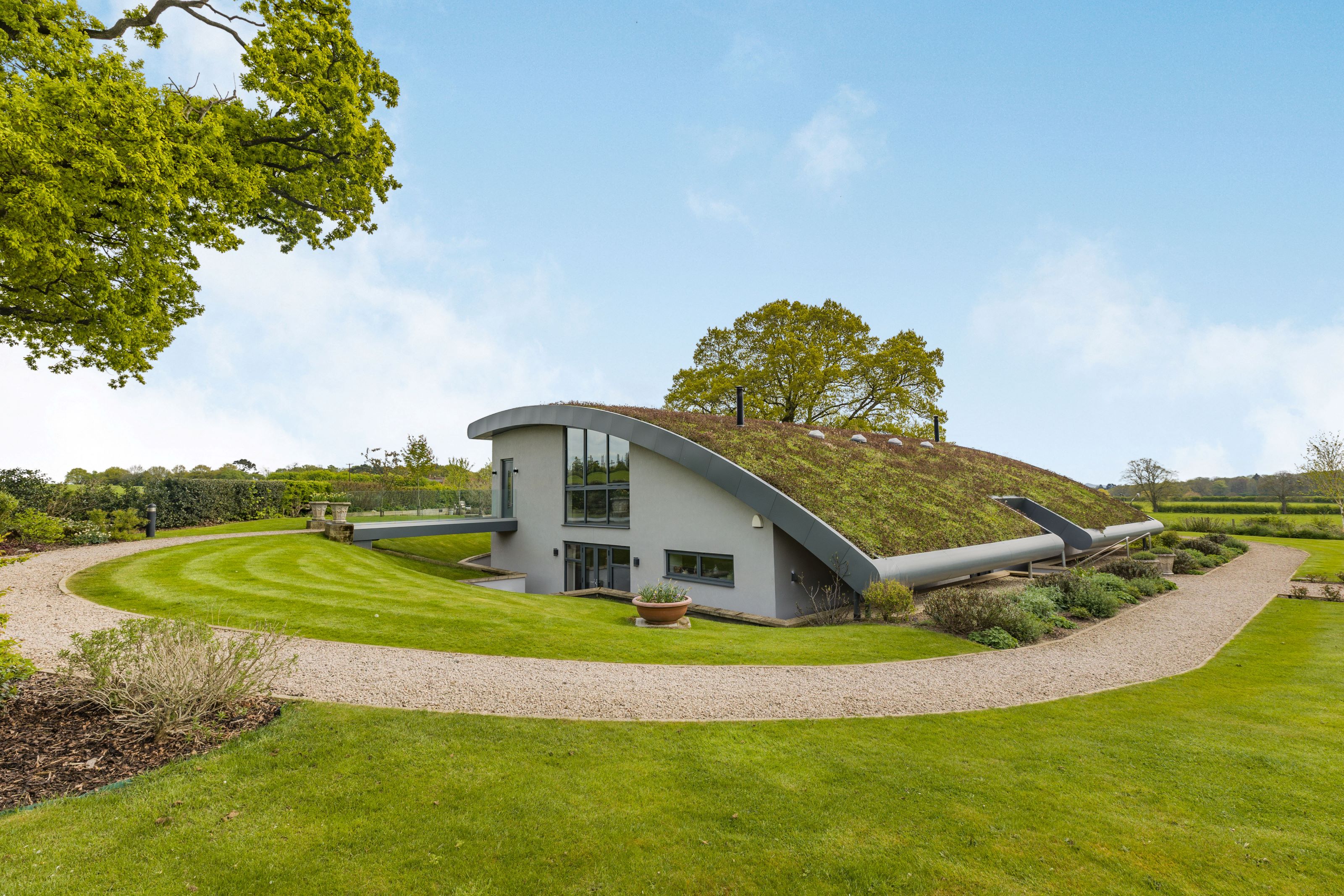
This stunning 'Hobbit House' in one of the Shire counties not only visually blends into the landscape but is green at its core too.
The eco home, which is a self build project, is kitted it out with its own borehole water supply for irrigation, solar panels and a biomass boiler.
Meanwhile a living roof is not only a striking feature akin to a home from Lord of the Rings, but minimises the visual impact of the house and provides a habitat.
The home in Grinshill, Shropshire, is now up for sale for £1.75 million through estate agent Strutt & Parker.
It was originally "brought to life" in 2017 after its current owner built the home on a plot of land at the bottom of the garden, explains Alastair Summerfield, Director of Strutt & Parker Shrewsbury.
And any potential buyer will be impressed with its eco credentials and layout for modern living.
A living roof blends into the landscape
Perhaps this eco house's most striking feature – and one for which it has been dubbed the 'Hobbit House' – is its sloping living roof.
Get the Homebuilding & Renovating Newsletter
Bring your dream home to life with expert advice, how to guides and design inspiration. Sign up for our newsletter and get two free tickets to a Homebuilding & Renovating Show near you.
"Three Oaks has a fantastic eye-catching design – in particular the sloping living roof – but is also incredibly well suited to everyday living," says Mr Summerfield.
"The sloping sedum roof helps to reduce the visual massing of the property — key for a property of this size and in a location such as this. In fact, from the adjacent hill, a local beauty spot, this self build blends into the landscape," adds Claire Lloyd, editor of Homebuilding & Renovating.
But aesthetics aside, it also serves a practical purpose in helping to keep the temperature stable inside the house, including aiding to prevent overheating in summer.
"The living roof helps the home’s thermal performance and is a great draw for flora and fauna,” says Mr Summerfield.
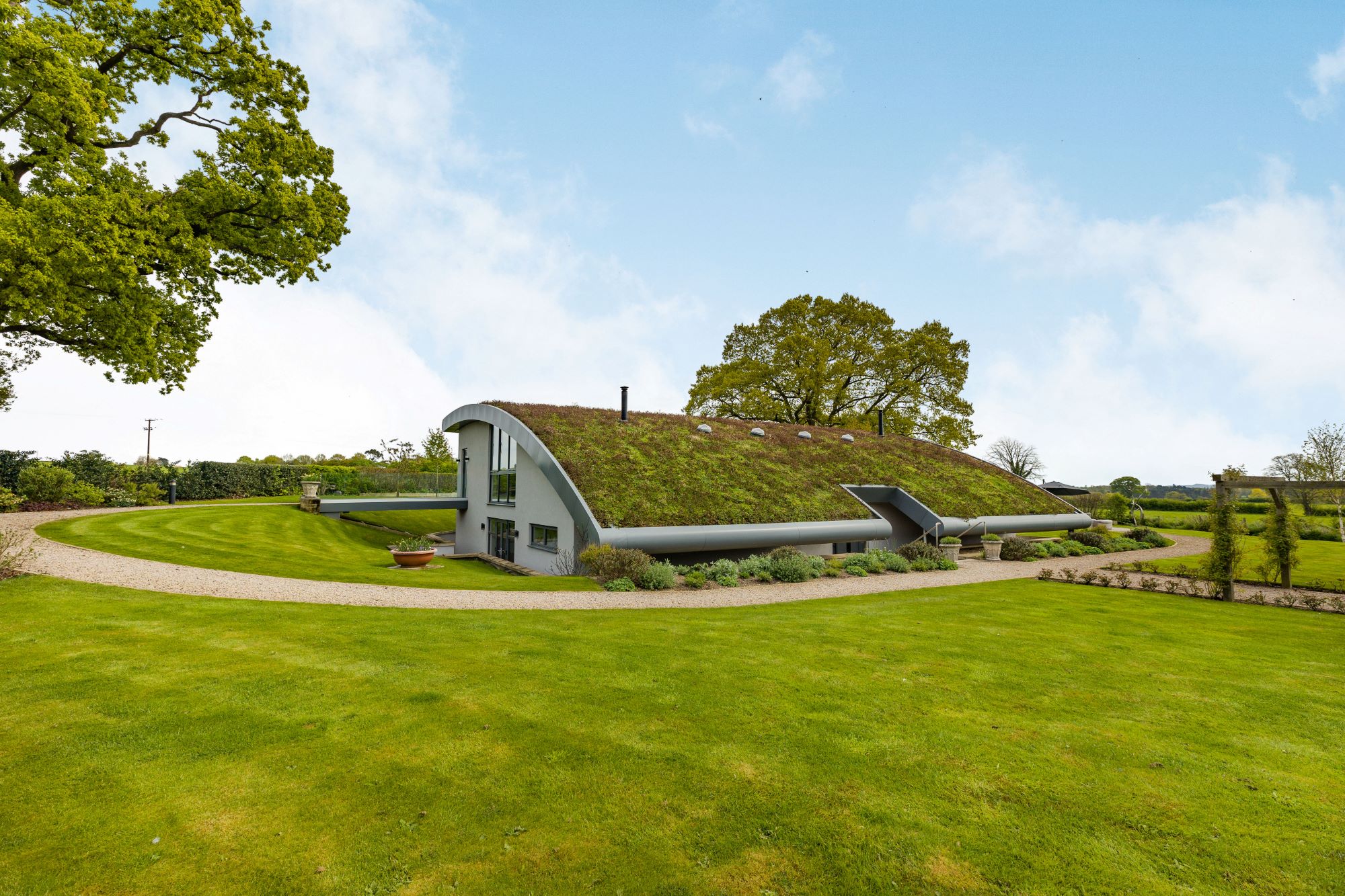
Green roof such as this can also help in noisy environments, providing an element of sound insulation. That said, noise doesn't appear to be a worry for this home as it is nestled within the Shropshire countryside, far from any busy traffic on nearby roads.
Living roofs also absorb water well, reducing rainwater run-off, and as such can help to mitigate against flooding.
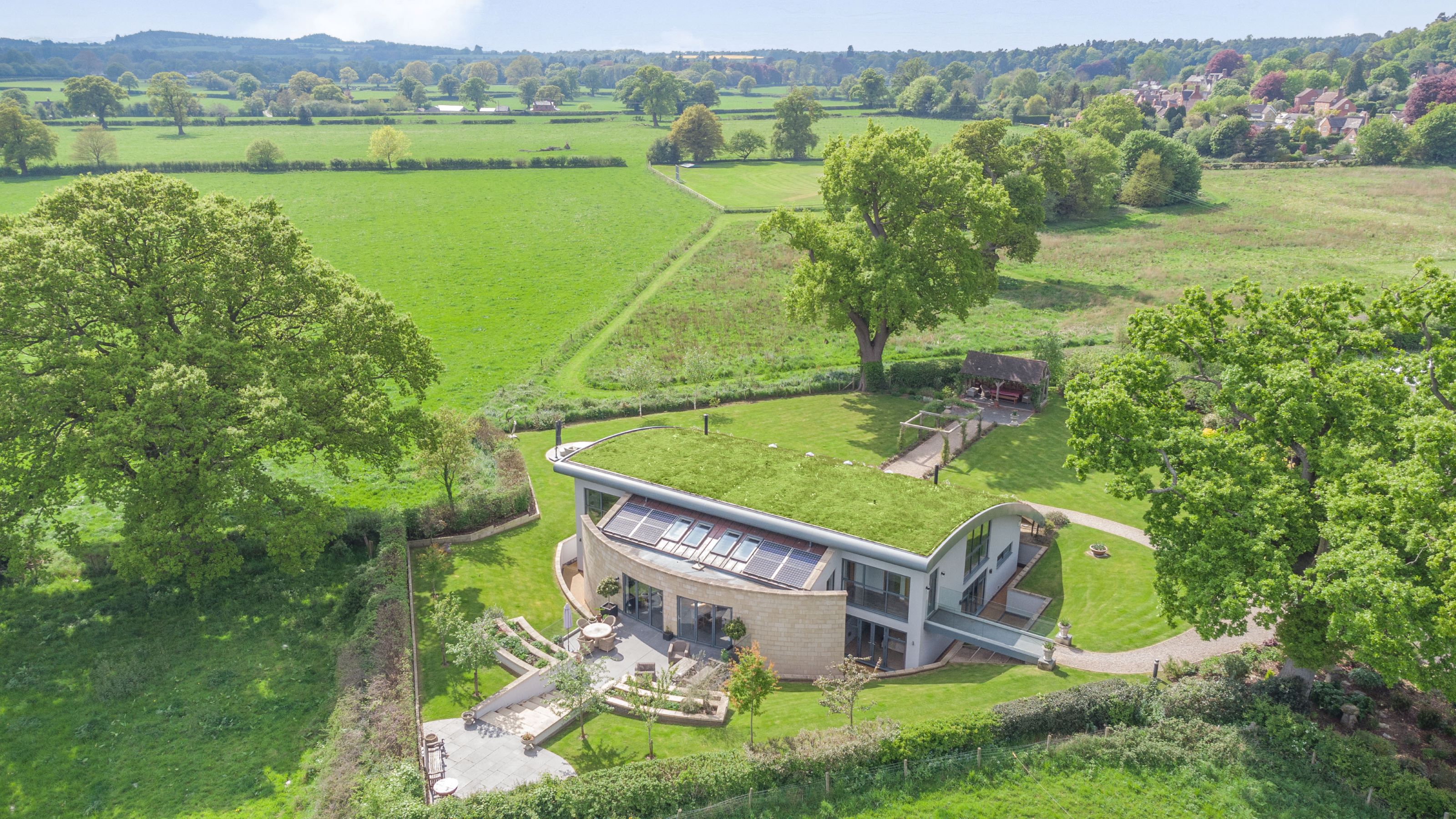
Solar panels give the home its own power source
This self build has solar panels installed on the upper deck of the roof to give the property its own renewable energy source.
Whilst the property is connected to the grid, the solar PV panels mean it won't put pressure on the national grid, which given there's 7,000 square foot of internal space, is an added bonus.
An electric Aga in the kitchen capitalises on the home's generation, too.
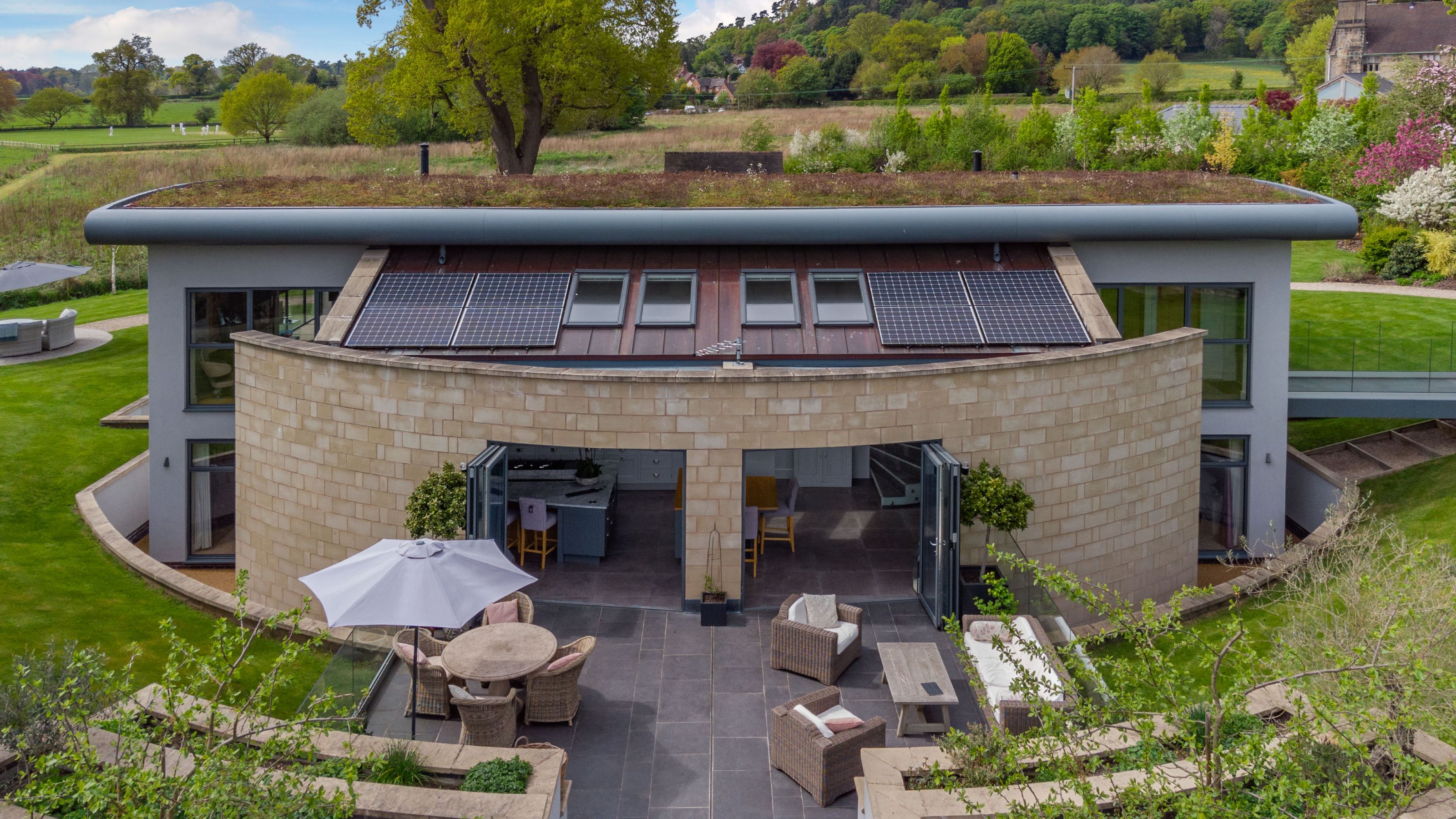
There's a biomass boiler with intelligent heating
Biomass boilers burn organic material – often in the form of wood chips, pellets or logs – which is renewable, to create heat. This is considered preferable to gas or oil boilers that use fossil fuels.
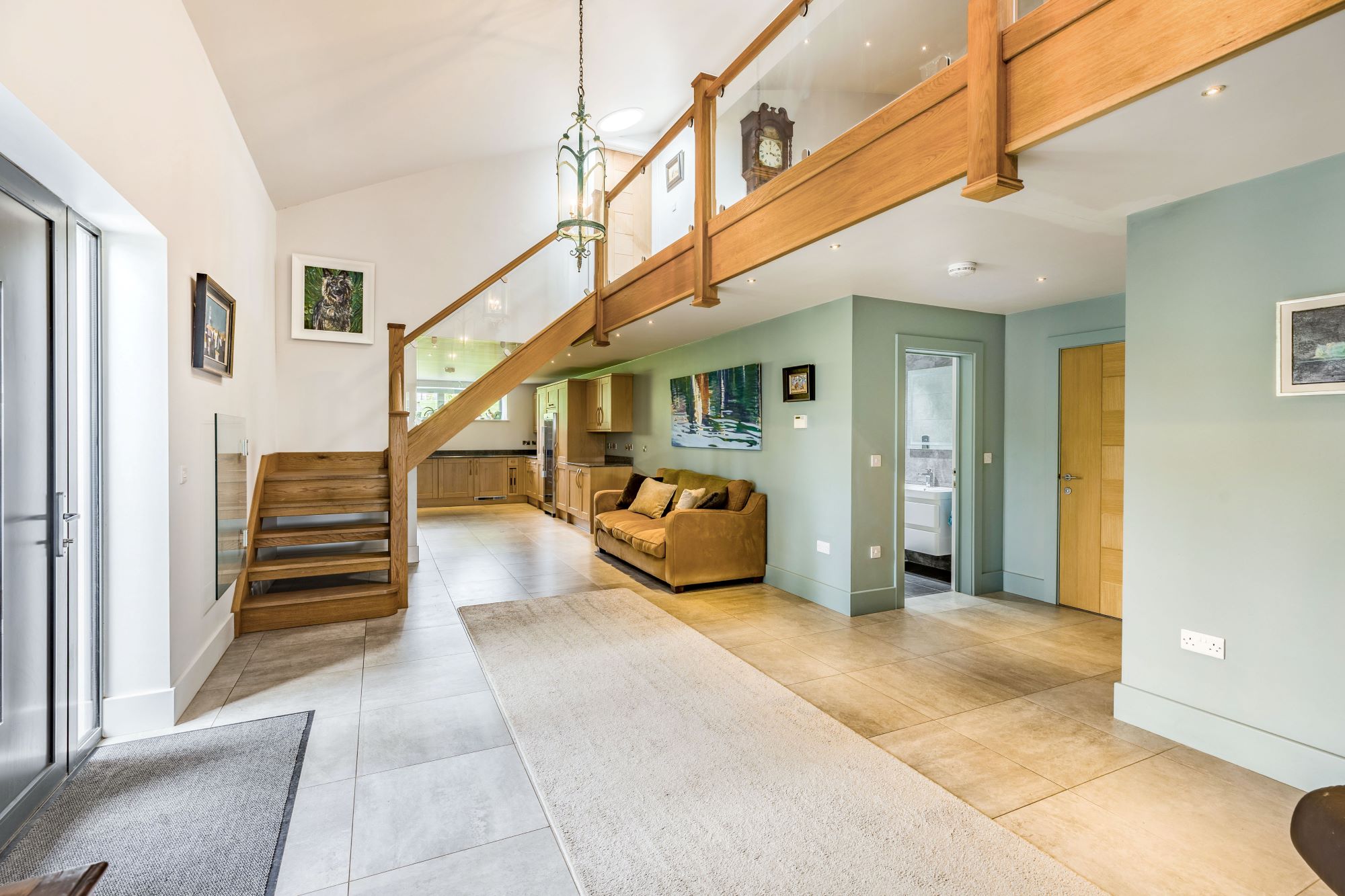
The self build is set up to use this biomass boiler in conjunction with 'an intelligent heating system' to help with heating costs. This includes underfloor heating throughout the home. There are also Aga log burners, which can be found in several rooms including its library.
The home being well-insulated – it has an EPC rating of B – helps to reduce running costs.
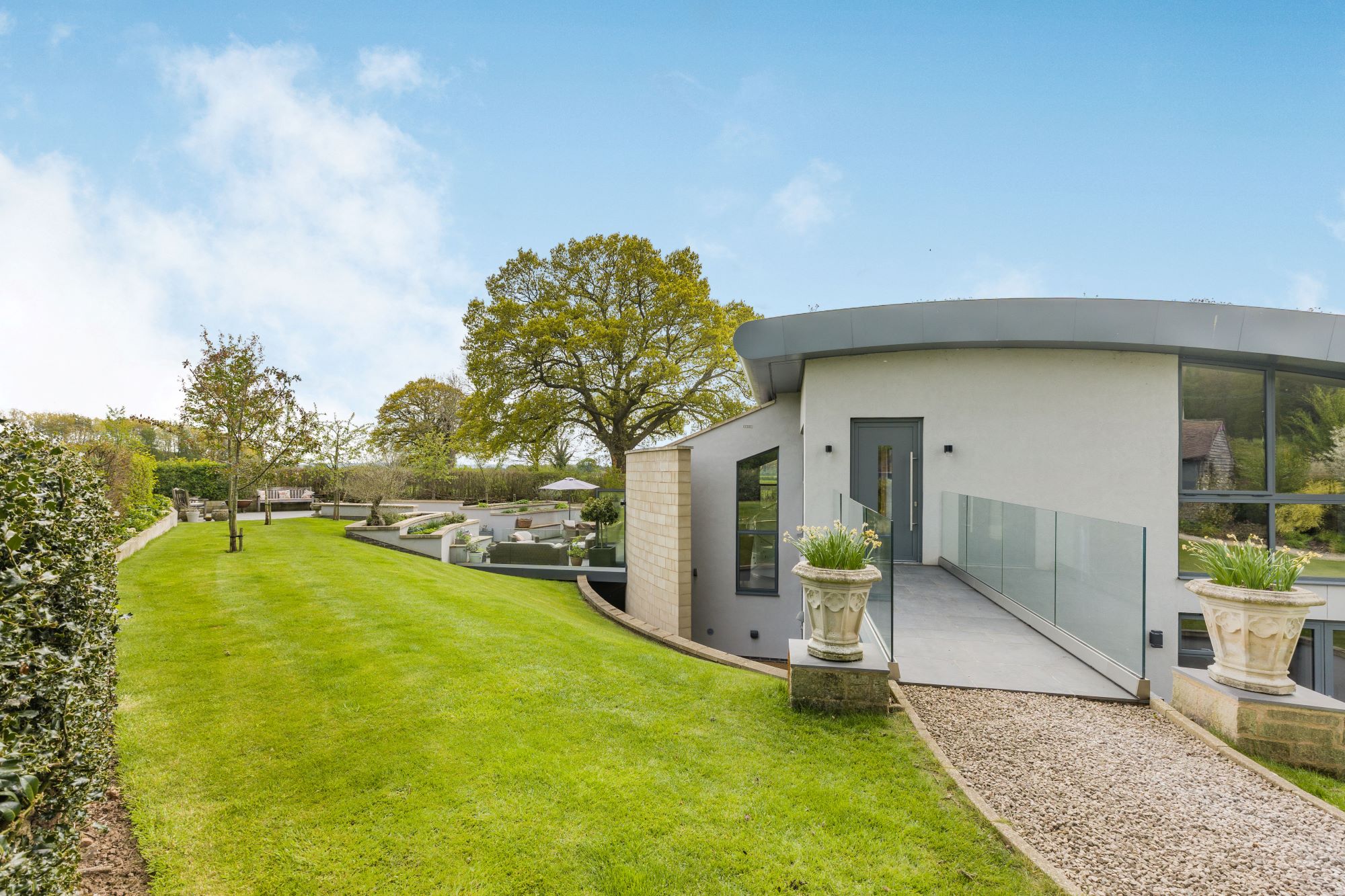
Family area opens up to bring the outdoors in
One of the great features of this house is the double bifold aluminium doors in the family area.
These open up onto a paved garden terrace that makes the entire space feel like one area. The two spaces are beautifully linked to work together with a continuous flow of Porcelanosa tiles throughout.
The terrace leads on to one acre of gardens too.
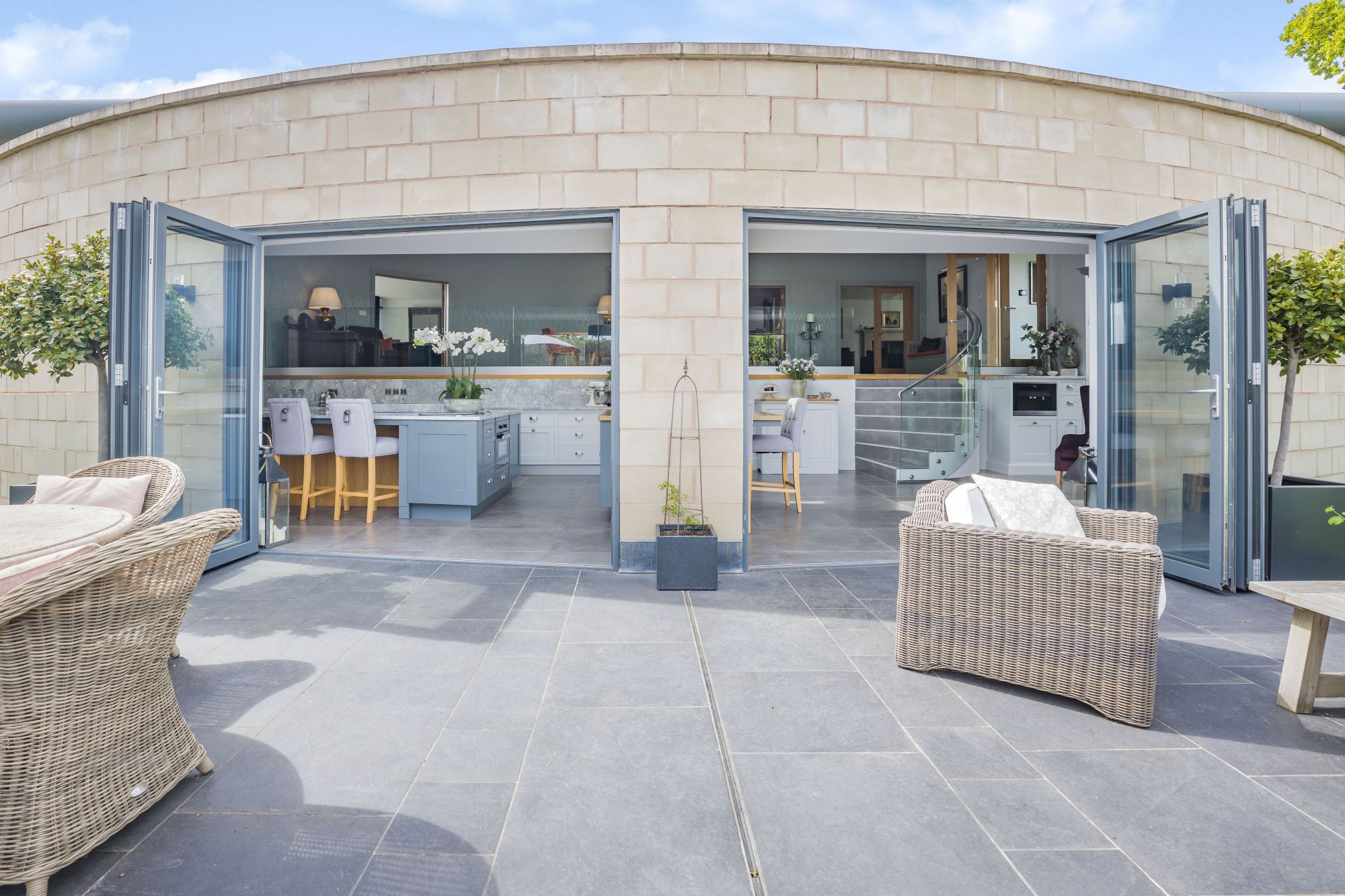
The double bifold doors are also recessed with no step between the indoor and outdoor spaces, again to make it feel like one area.
"The kitchen opens out onto a large decked terrace which is brilliant for entertaining, as well as bringing the outdoors into the home," explains Strutt & Parker's Mr Summerfield.
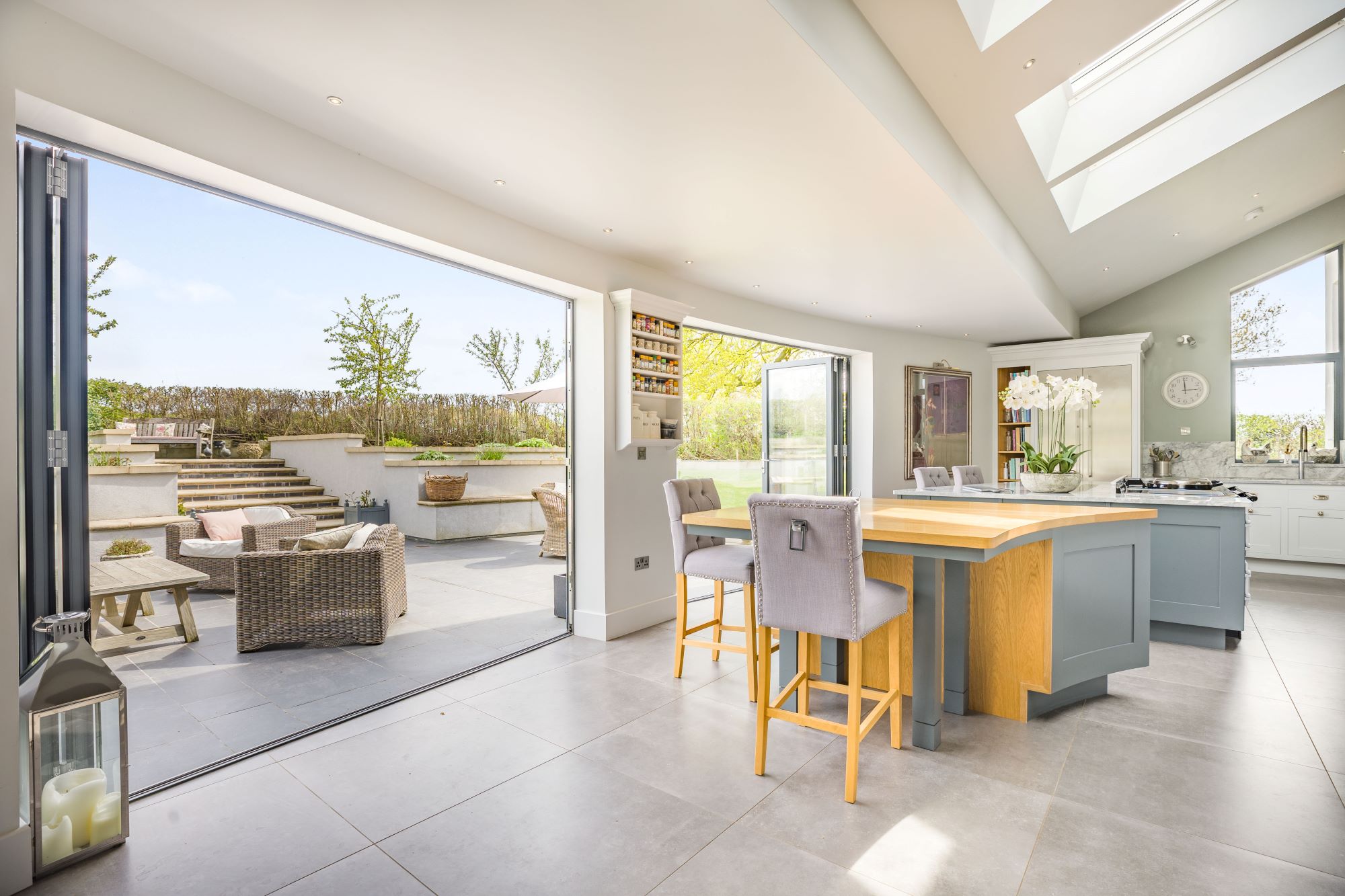
Large ceiling windows in the family room add light to the space too.
The property actually has two kitchens, the second can be accessed privately with the possibility of being able to turn the area into a self-contained annex.

Open plan kitchen and diner for modern living
The kitchen is designed by Luxury kitchen company Smallbone, with a Gaggenau fridge-freezer, electric Aga and an inbuilt Miele coffee machine and microwave.
The kitchen and dining room area whilst boosting open plan living is divided into split levels, linked by a curved stairwell with tile treads, to make sure the space stills feels homely.
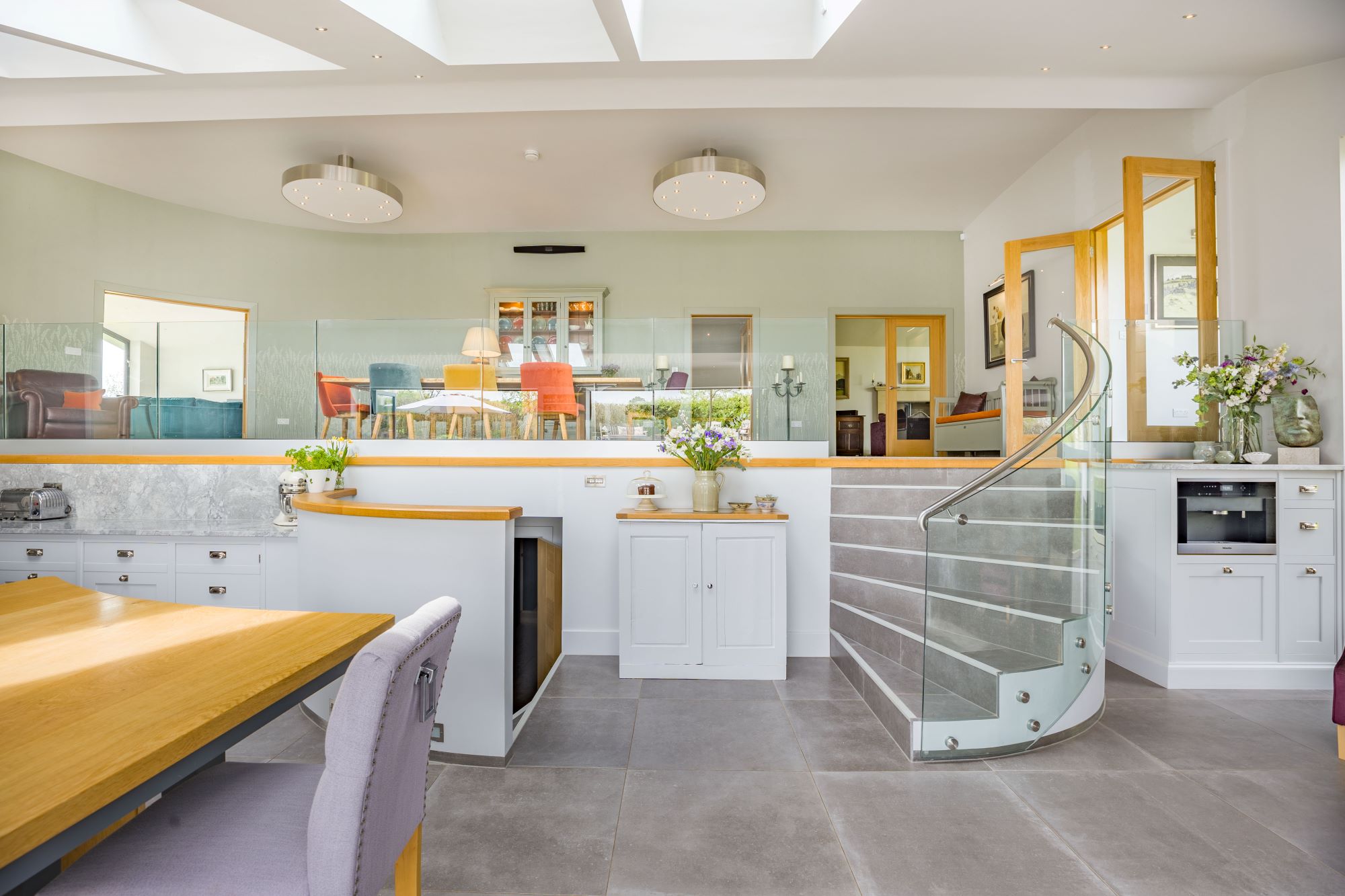
A glass balustrade keeps the area feeling open plan as well as making sure there is plenty of natural light.
The dining room on the mezzanine floor overlooks the kitchen and is 37ft in length.
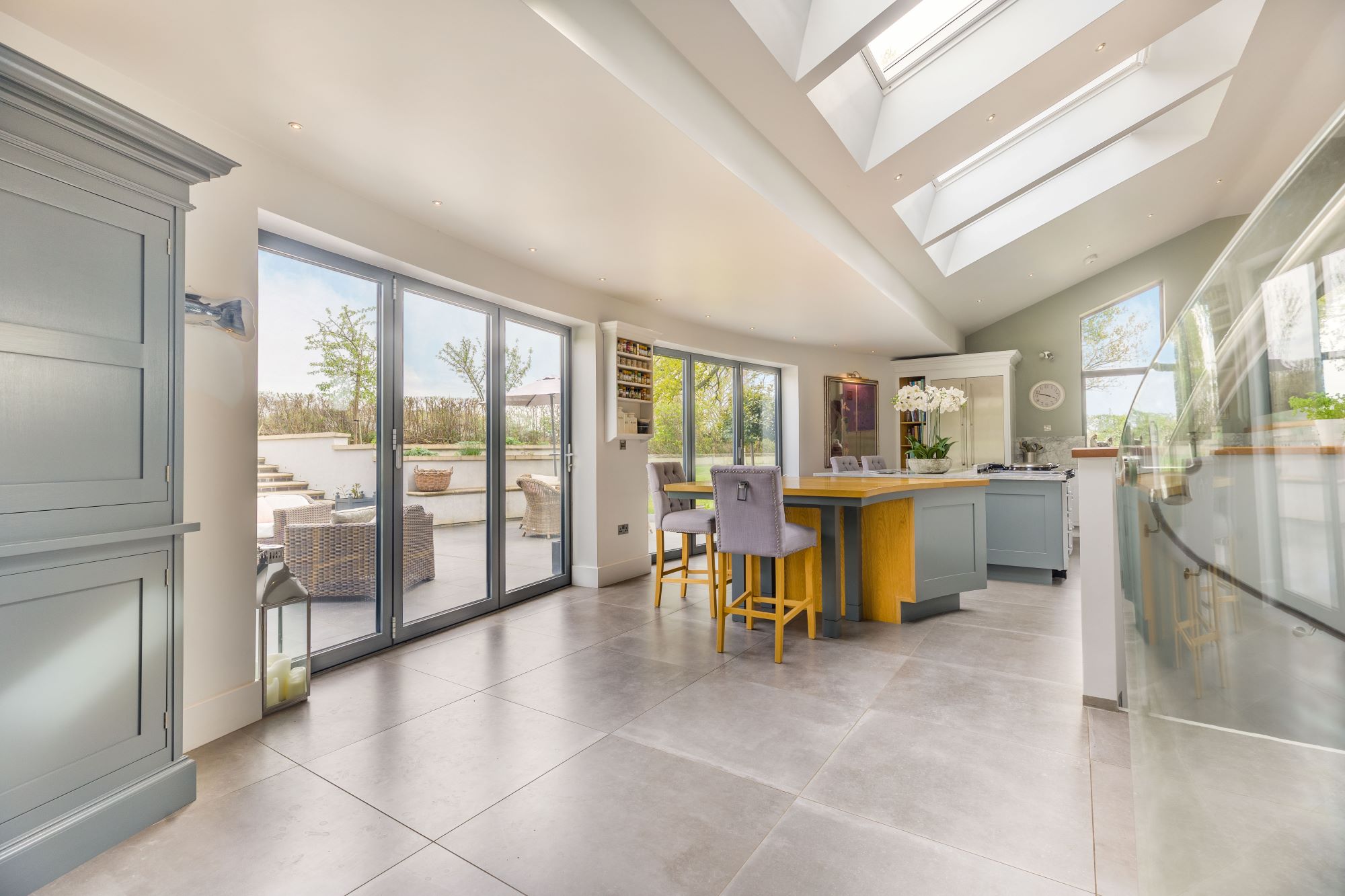
The kitchen has not one but two islands, one large central island with a marble work surface plus a second with oak top and breakfast bar.
The whole open space makes for a great place for the family on a daily basis but also for entertaining guests.
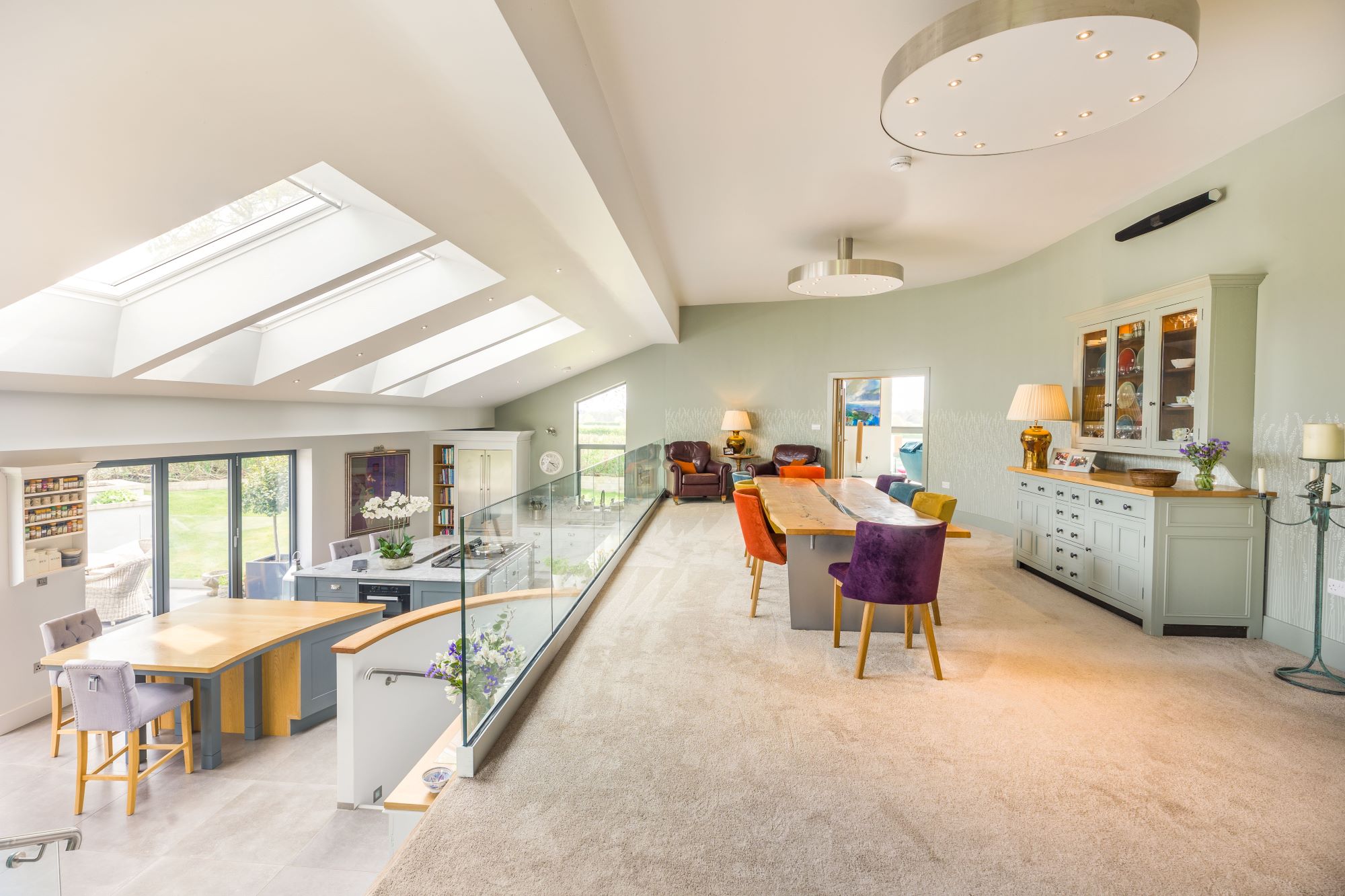
"The main reception area in the house gives a real wow factor and lends itself to family living — it’s spacious, has great natural light and the split level aspect provides useful ‘zoning’ whilst still being open plan," explains Mr Summerfield.
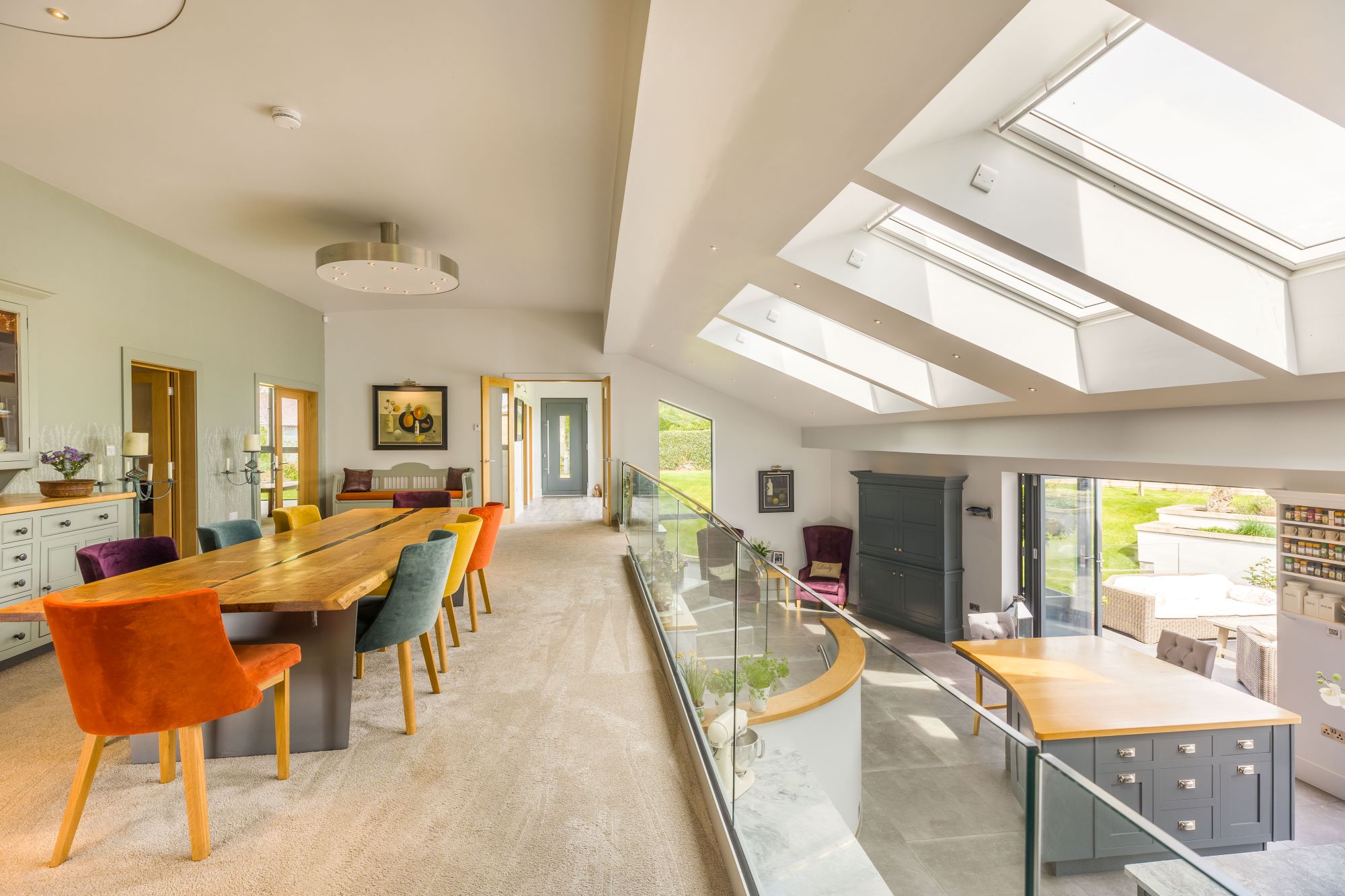
Bedrooms bathed with natural light and outside access
The 'Hobbit House' has four bedrooms, each with an en suite bathroom and bespoke inbuilt wardrobes from Hammonds.
But what makes the rooms particularly special is how yet again it manages to bring the outdoors inside with glass doors and floor to ceiling large windows.
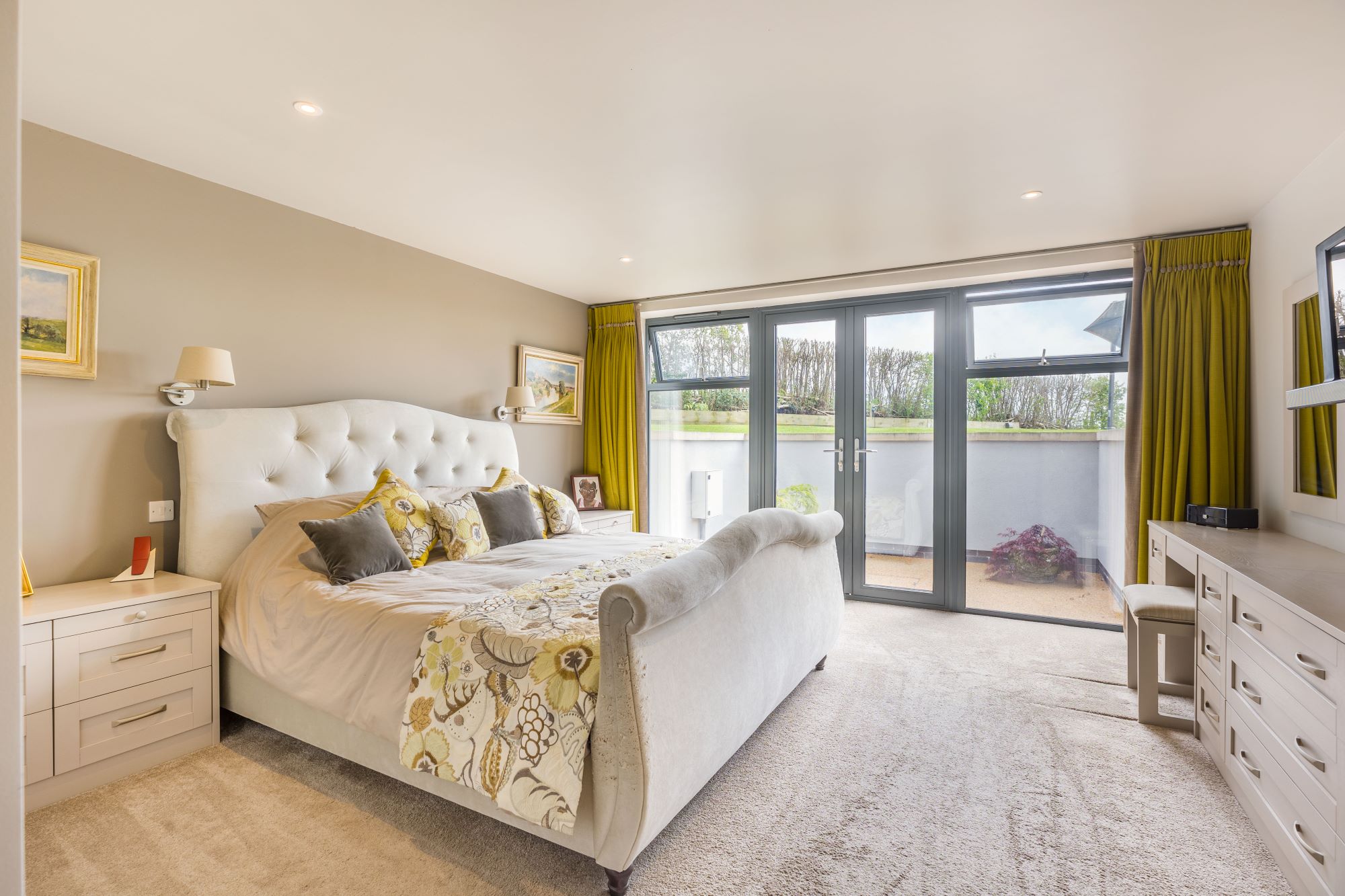
A stunning eco home that sets an example
The Hobbit House is on the market with Strutt & Parker for £1.75million and currently under offer.
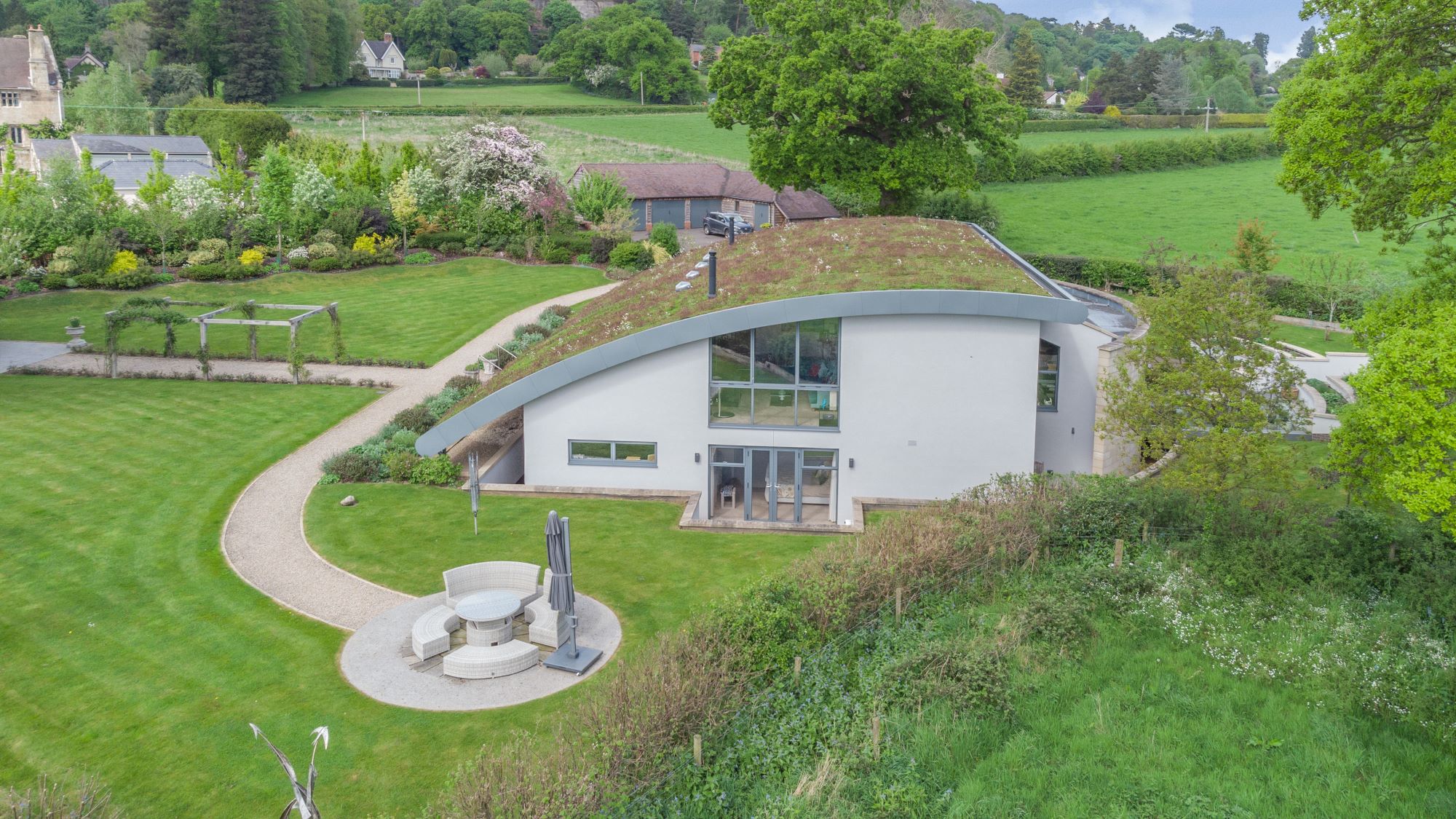
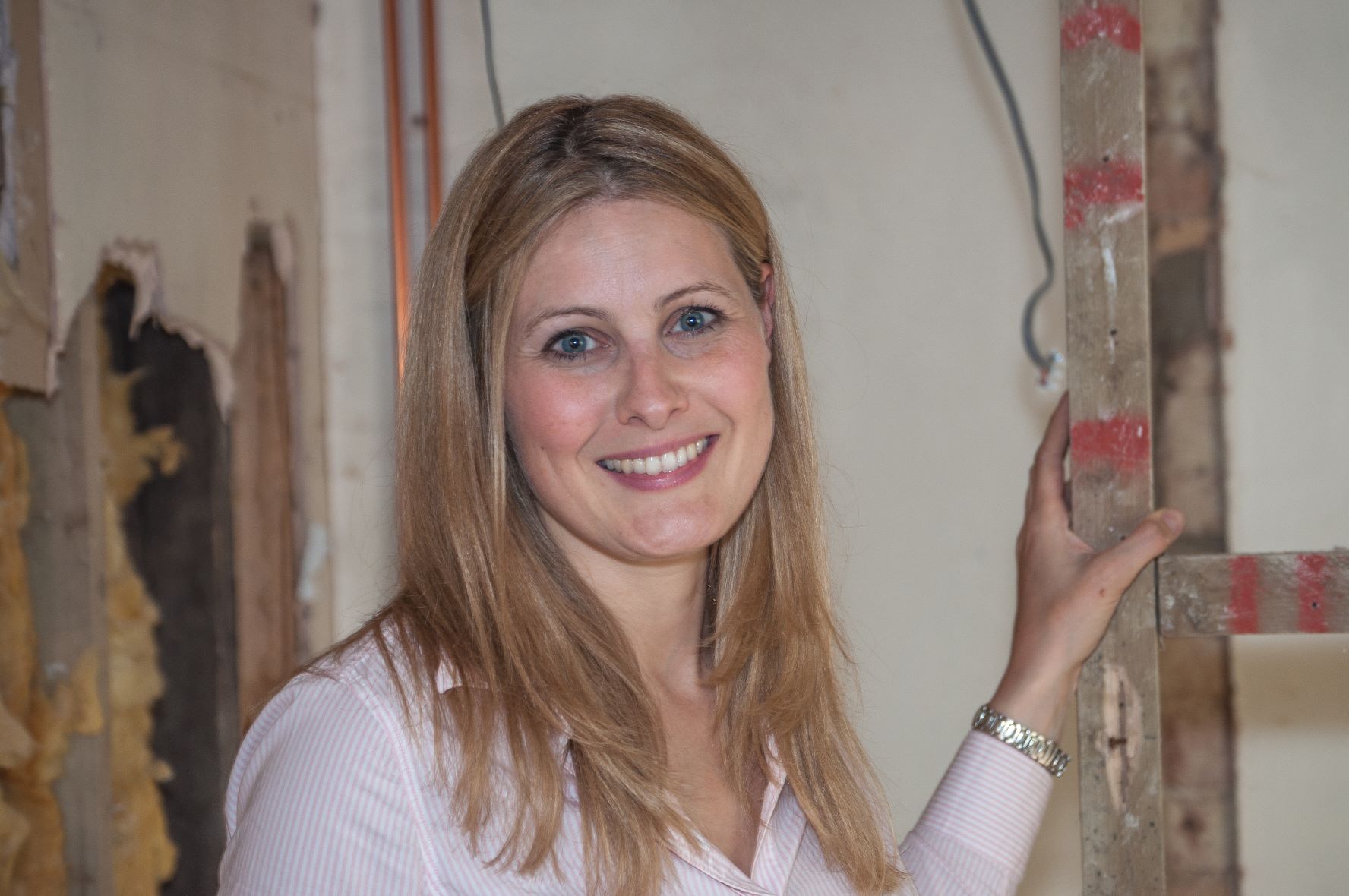
Amy spent over a decade in London editing and writing for The Daily Telegraph, MailOnline, and Metro.co.uk before moving to East Anglia where she began renovating a period property in rural Suffolk. During this time she also did some TV work at ITV Anglia and CBS as well as freelancing for Yahoo, AOL, ESPN and The Mirror. When the pandemic hit she switched to full-time building work on her renovation and spent nearly two years focusing solely on that. She's taken a hands-on DIY approach to the project, knocking down walls, restoring oak beams and laying slabs with the help of family members to save costs. She has largely focused on using natural materials, such as limestone, oak and sisal carpet, to put character back into the property that was largely removed during the eighties. The project has extended into the garden too, with the cottage's exterior completely re-landscaped with a digger and a new driveway added. She has dealt with de-listing a property as well as handling land disputes and conveyancing administration.
